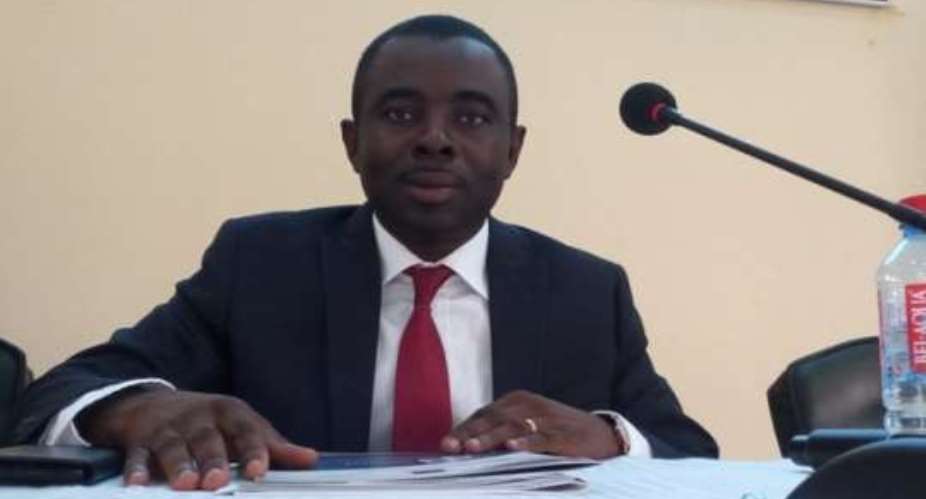By Iddi Yire, GNA
Accra, Jan. 18, GNA - Professor Joshua Yindenaba Abor, the Dean of the University of Ghana Business School, has said the capacities of agricultural financial institutions must be strengthened and farmers resourced to be able to make decisions to become entrepreneurs.
He said the agricultural sector, though beset with a lot of risks, had a lot of financing opportunities that made business sense.
Prof. Abor was speaking on Wednesday in Accra during a panel discussion at the ongoing 68th Annual New Year School and Conference at the University of Ghana.
He said it would take a collaborative effort among government, financial institutions and actors in the agriculture value chain to successfully fund agriculture.
"Going forward, there must be a departure from funding agriculture in a piecemeal fashion," he said, and advocated an integrated approach to financing agriculture.
Prof. Abor said this integrated approach was necessitated by the 'fungible' nature of money adding; "it would not be enough to make funding available to farmers only for production purposes.'
He said the consumption needs of farmers were linked to their production needs as well as their nonfarm activities.
Prof. Abor said such financing must, therefore, encompass the agriculture value chain, nonfarm enterprise and the household.
He explained that if farmers knew that they could only get funding for farming and not for their health, educational and other needs, they would still go for loans for farming purposes, but divert them to meet their most pressing and survival needs.
Prof Abor said financial inclusion and financial innovation were critical channels by which financial products and services could be brought to the doorsteps of the rural population.
He said mobile banking, mobile payments and branchless banking services should be pursued by financial institutions and financial sector actors in this regard.
Prof Abor explained that the Government could create an enabling environment for agriculture financing by improving the efficiency of the judiciary and the courts, consolidating land and property rights, and investing in infrastructure such as transport, telecommunications, electricity and water in agricultural areas.
He said agriculture remained a key employer of the economically active population across the world and that globally the sector employed about 40 per cent of the labour force and it was the backbone of the economy of many developing countries.
Data from the Ghana Statistical Service shows that agriculture remains the leading employer, employing 44.7 per cent of the workforce compared to 40.9 per cent for the services sector and 14.4 per cent for industry.
He said the agriculture sector contributed significantly to Ghana's Gross Domestic Product.
The 68th Annual New Year School and Conference, on the theme; "Promoting National Development through Agriculture Modernisation: The Role of ICT,' is being organised by the School of Continuing and Distance Education, University of Ghana, under the auspices of MTN, Eximbank Ghana, and The Kosmos Innovation Centre.
It is to create the platform for in-depth discussions on how ICT could be integrated into agriculture to modernise the sector for sustainable national development.
GNA





 Former Kotoko Player George Asare elected SRC President at PUG Law Faculty
Former Kotoko Player George Asare elected SRC President at PUG Law Faculty
 2024 elections: Consider ‘dumsor’ when casting your votes; NPP deserves less — P...
2024 elections: Consider ‘dumsor’ when casting your votes; NPP deserves less — P...
 You have no grounds to call Mahama incompetent; you’ve failed — Prof. Marfo blas...
You have no grounds to call Mahama incompetent; you’ve failed — Prof. Marfo blas...
 2024 elections: NPP creates better policies for people like us; we’ll vote for B...
2024 elections: NPP creates better policies for people like us; we’ll vote for B...
 Don’t exchange your life for wealth; a sparkle of fire can be your end — Gender ...
Don’t exchange your life for wealth; a sparkle of fire can be your end — Gender ...
 Ghana’s newly installed Poland train reportedly involved in accident while on a ...
Ghana’s newly installed Poland train reportedly involved in accident while on a ...
 Chieftaincy disputes: Government imposes 4pm to 7am curfew on Sampa township
Chieftaincy disputes: Government imposes 4pm to 7am curfew on Sampa township
 Franklin Cudjoe fumes at unaccountable wasteful executive living large at the ex...
Franklin Cudjoe fumes at unaccountable wasteful executive living large at the ex...
 I'll 'stoop too low' for votes; I'm never moved by your propaganda — Oquaye Jnr ...
I'll 'stoop too low' for votes; I'm never moved by your propaganda — Oquaye Jnr ...
 Kumasi Thermal Plant commissioning: I pray God opens the eyes of leaders who don...
Kumasi Thermal Plant commissioning: I pray God opens the eyes of leaders who don...
